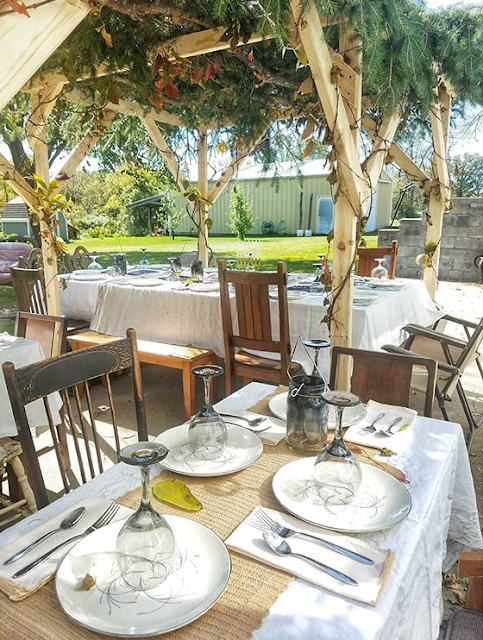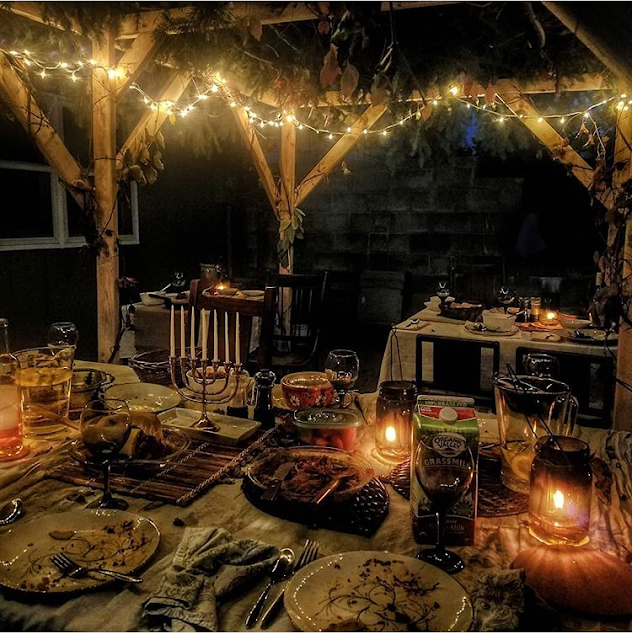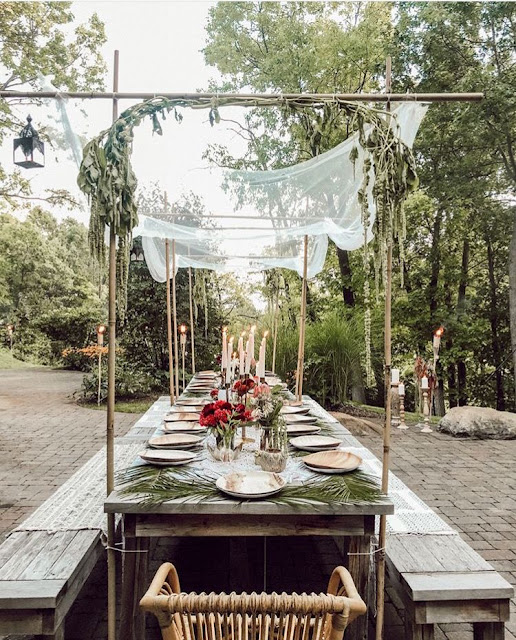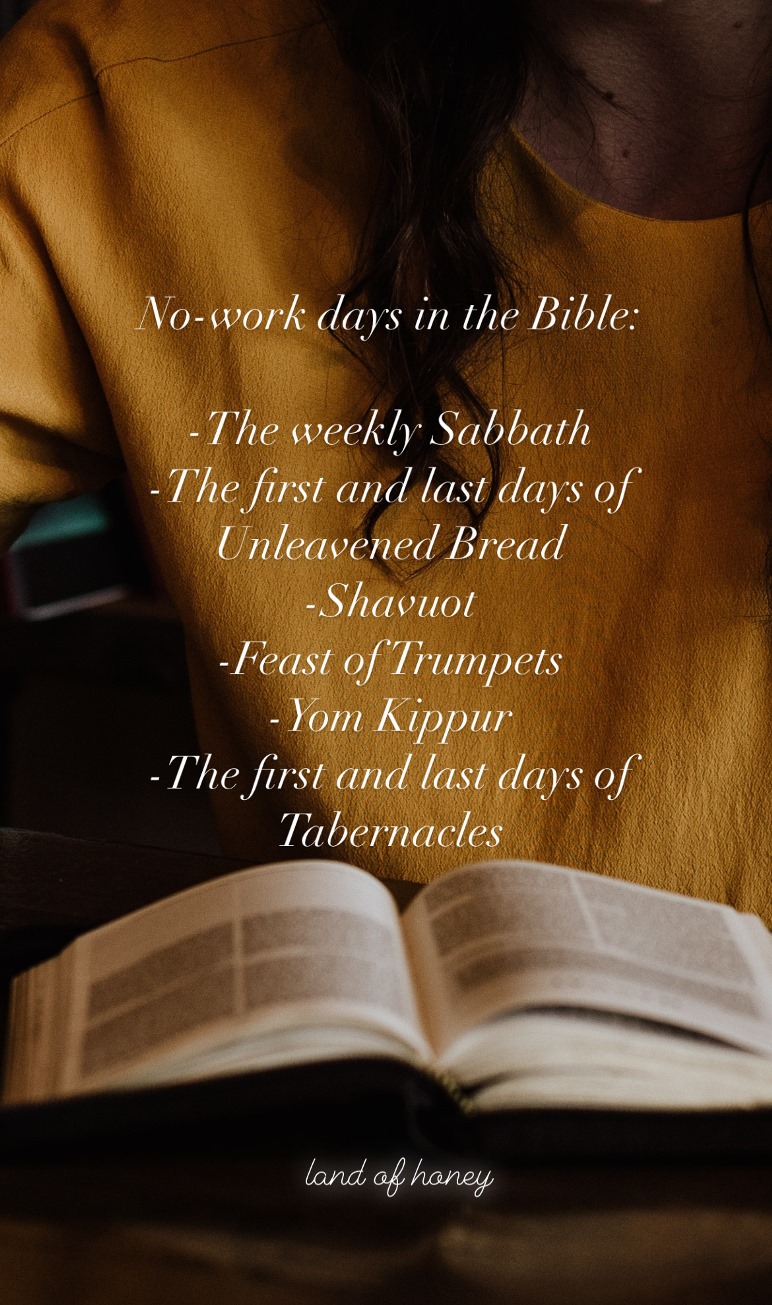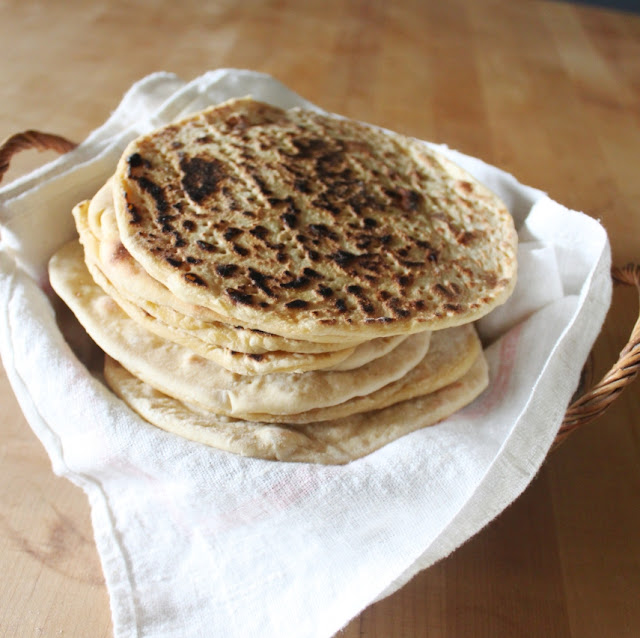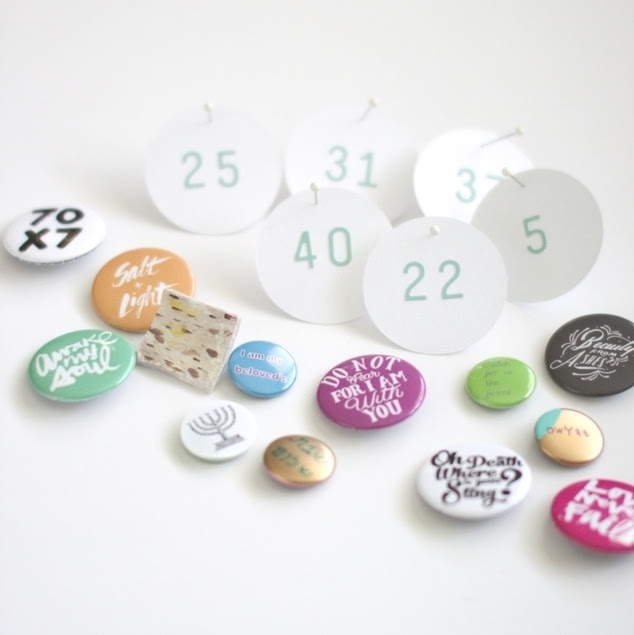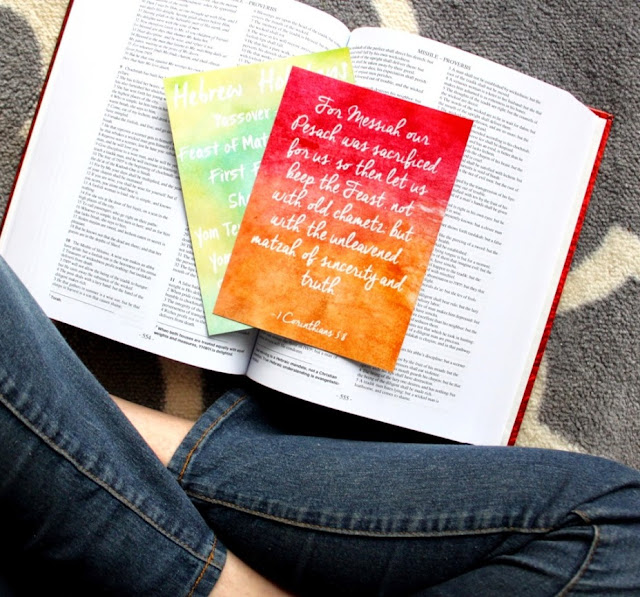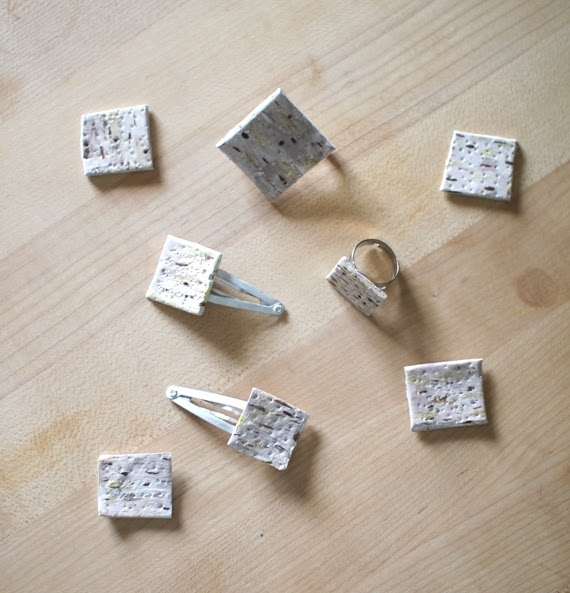Who needs ideas for their temporary dwelling? Scripture instructs us that during Sukkot or the Feast of Tabernacles we are to live in temporary dwellings or booths (Leviticus 23:42). While Judaism has many, many rules for how a sukkah should look and be, Scripture doesn't give specifics. So I have no doubt that YHWH expected us to each put our own spin on how we keep this commandment. I love getting to share sukkahs from several different feast keepers so you can see the range of possibilities. Your temporary dwelling could be a tent or a camper or a homemade canopy. Hopefully this inspiration sparks and idea that is doable for you.
From @blooming_light - What a pretty set up for a Sukkot dinner party! Simple two by fours can definitely be dressed up to look elegant.
From @blooming_light - After the party!
From @elysamary - The lights add such a festive touch to this elegant sukkah!
From Land of Honey - This is my yarn sukkah from a few years back. The structure is really easy to do. The yarn takes a little persistence but is definitely doable, or you could put curtains or a tarp up to make more protective walls.
A friend send me this picture of a more traditional sukkah in Rittenhouse Square in Philadelphia. You can get kits for sukkahs similar to this.
Another friend made this using the structure from an old swing set, and then some furniture and decor that she had. It looks like a great place for Bible study!
From @taliacarbis of The Climbing Tree - I love that she took comfy furniture and a rug (a plant even!) to make this temporary dwelling more like home. These touches make for an inviting atmosphere for your friends and family to spend time in.
From @taliacarbis of The Climbing Tree - Decorative touches like Talia's pomegranates can be a great activity for kids or yourself.
From Land of Honey - See the whole post for this here. It's made out of bamboo rods and thrifted curtains.
From @blooming_light - Here's a woodsy temporary dwelling made from tree branches and pine boughs.
From Asherah Cinnamon, displayed at the Oregon Jewish Museum Sukkah exhibit in 2014 - the branches in this one are so pretty!
A big thank you to everyone who allowed me to share their work and photos; you guys are inspiring others to keep the feasts of YHWH! #sukkahgoals for sure!
More sukkah inspiration here. And here.

